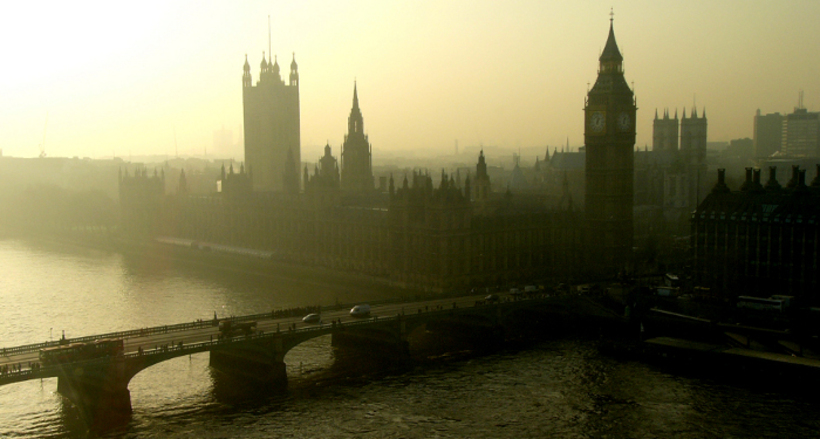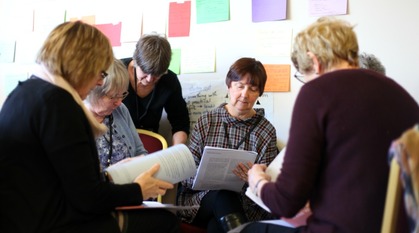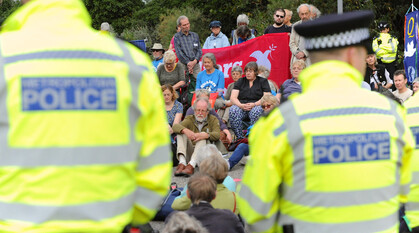Working with the government on climate policy: what we’ve learned
Paul Parker shares some reasons for cautious optimism after meeting the Minister of State for Energy and Clean Growth, and explains why the Quaker voice for climate counts.

We know that confronting our climate crisis requires us to embrace fundamental changes: to our lives, what we buy, how we use energy and other resources. Through our Quaker worship and our witness, we seek a truer way of living – one that allows our testimonies to flourish.
But living sustainable lives requires a sustainable economy too. We need government to invest in a green economy and act now to keep fossil fuels in the ground.
Luckily, we're no strangers to speaking our minds to government. It's why this year my colleagues and I, alongside and on behalf of Friends across the country, have been working hard to make our views on climate change heard by politicians.
A year ago, the need for government leadership on the UK's climate impact was all too stark. Despite ever more alarming findings by climate scientists on the rate of global warming, the UK government had said little about how it would meet our national obligations on climate change.
Listening to faith voices
A year later – and I say this with cautious optimism – the picture looks different. In October 2017, the government released its Clean Growth Strategy. Despite shortcomings and gaps in policy, it has committed government to significant investments in energy efficiency, renewable power and green transport. This April, the government announced an intention to update climate laws to commit the UK to a net-zero emissions economy. A big challenge, but an essential one if the UK is to show global leadership on climate change.
Whilst serious questions remain about how the government will meet the UK's climate target, faith groups now have something to work with. Earlier in September Claire Perry, Minister of State for Energy and Clean Growth, asked me to bring together a small group of faith leaders to speak with her about our shared hopes and concerns for UK climate policy. It was a chance to hold the government to account on climate obligations and offer our support for bold political action.
I came away from our meeting sensing that, more than ever, the time is now for Quakers to make our voices heard. This is for two reasons:
1. There's genuine political ambition to lead on climate change. We have a clear sense that Claire Perry and her colleagues understand the gravity of the climate crisis we face, and that only ambitious action will avert it. In talking about a net-zero emissions target, the government are not short of vision. But encouragement, creative ideas and pressure must come from outside government if they are to do what's needed.
2. Government care what people of faith think about climate change. After all, we are a good marker of what citizens engaged in building a better world expect of our government. As faith groups, we're not party political, but we do care about policy. What's more, from Quakers, to Jews, to Muslims, national and local faith communities are working together to cut emissions. This experience informs our responses.
What can Quakers do?
The minister encouraged faith groups to "use our lobbying power". Many Quakers are already talking to their MPs about climate change in writing and in person. Perhaps you can do the same. Briefings for Friends like this one on emissions cuts (PDF) outline questions to raise with MPs. But we needn't be policy experts. What matters is that we use our Quaker voice to call on the government to build a truly sustainable economy.
On 1 December in Manchester, Quakers in Britain and Friends from Manchester & Warrington Area Meeting are teaming up with Hope for the Future to run a training for Friends to engage with politicians on climate change. The training is open to all Quakers, whether they are experienced in lobbying or completely new to it.


